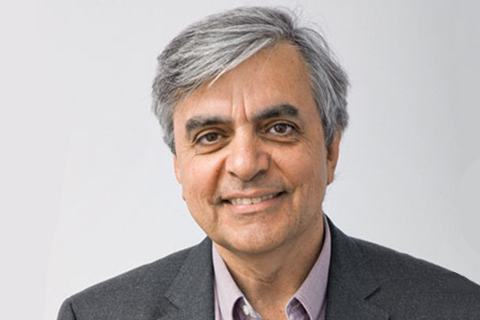With two bachelor’s degrees, five master’s and one doctorate in subjects ranging from commerce and industrial relations to psychology and statistics, Lorne Bozinoff is a very well educated man. Bozinoff (BCom 1976 VIC, MBA 1977, PhD 1980, MEd 1982, MA 1983, MSc 1985, MIR 1989, BA 1993 VIC) holds the record for the highest number of degrees earned at U of T. He’s currently the president and CEO of Forum Research, a market research company he founded. Lisa Bryn Rundle caught up with him in the hopes of learning a thing or two.
Three degrees are generally the max. Why go for the fourth?
It’s really a matter of where my interests took me. My PhD is actually one of my earlier degrees. (I did five after that.) And the later ones are based on things that I was interested in while I was conducting my doctoral research on how consumers perceive products. It’s like pulling a thread. You’re looking at one area of interest and that leads to another.
Your email signature must be very long.
No, no. I don’t list my degrees. Too long and a little ostentatious.
It’s an enormous amount of work. Does it get any easier after the fifth or sixth degree?
Definitely.
You run a market research firm. How do all your degrees feed into your work?
It’s a big competitive advantage for us. If you look at those degrees you can see some obvious connections with the commerce, marketing and business administration. With the psychology, there’s a big interest these days in cognition and memory as it pertains to how people conceptualize commercial brands. That’s directly relevant to what I was studying 20 years ago.
As you mentioned, you had a PhD early on. Is it a challenge to be a student when you’re already an expert?
No, not really. I learned a long time ago that you don’t learn very much when you’re doing the talking. I never talked about my academic background. I really wanted to hear what other people had to say – the professors and other people in the class.
Some argue that the financial and time investment in graduate education isn’t always worth it in a tough economy. What do you think?
I can only speak to my own experience but in my case – despite the heavy investment – it’s been well worth it. It lets my company do more than just redo someone else’s research. We can look at a problem with a depth of knowledge. I use all of it, not just the business degrees, in my day-to-day experience.
You haven’t completed a degree in a while. Are you getting itchy? Sneaking peeks at course calendars?
No! Once you get a little older and you have a family you become extremely busy. But who knows, once the kids are out . . .
So you wouldn’t say for sure that you’re done.
I never say never about anything, especially something like this.
And just to confirm my imagined version of you – have you ever lost at Trivial Pursuit? Because in my mind you always win.
I’m pretty good at it.







No Responses to “ Eight Degrees of Education ”
Which degree typically comes first? It's just called a degree, right? Then bachelor's, master's, and PhD? Can you only get a master's if you've earned a bachelor's? I'm asking for a little guidance as I'm getting ready to graduate high school.
@Gabriela
The first degree earned by university students is a bachelor's degree, which typically takes four years and would be required to gain entry to a master's program. A master's degree may take another year or two. Earning a PhD can take several more years beyond that.
Good luck!